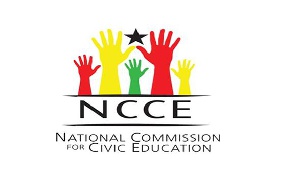 The NCCE has advised the public to use Alternative Disputes Resolution (ADR) to resolve conflicts
The NCCE has advised the public to use Alternative Disputes Resolution (ADR) to resolve conflicts
Mrs. Lucille Hewlett Annan, Greater Accra Regional Director of the National Commission for Civic Education (NCCE), has advised the public to use Alternative Disputes Resolution (ADR) to resolve conflicts.
Mrs. Annan said there was the need to resolve conflict amicably hence the ADR mechanism to deal with societal issues for peaceful co-existence.
The NCCE Greater Accra Regional Director gave the advice at a sensitisation programme organised by the Commission with support from the United National Education, Scientific and Cultural Organisation (UNESCO) and Tema Metropolitan Assembly (TMA).
The forum, which was on the theme: “Youth Activists on Peace and Tolerance,” seeks to empower the youth to stand out as an agent for the promotion of peace and to build their capacity to tolerate divergent views under extreme provocation.
She said the NCCE adopted the ADR approach to enable parties to reach a mutual agreement, which could not have been reached through an adjudicative process.
Mrs. Annan noted that ADR looked for solutions, which accommodate the needs, values, and interests while the processes are usually cheaper in terms of cost to the Court system.
"As compared to court where you pay for the services of a lawyer and the processes you go through, the ADR mechanism is simple and easy to go through," she said.
Mrs. Annan explained that ADR assures confidentiality and was flexible in the sense that the parties involved would choose a place of convenience as to where they wanted the issue to be discussed.
She said that ADR offered opportunities for persons who desire to reconcile and make peace with others without going through the hustle that characterised the legal process.
She advised that apart from Presidential elections, which when one is not pleased with the results should go to court as prescribed by the Constitution, conflicts in churches and other areas could be resolved by ADR.
Mr. Isaac Kwame Antwi, NCCE Tema Metropolitan Director, called on the youth to serve as agents to promote peaceful coexistence, a prerequisite for national development.
He explained that there was widespread concern about the high level of crime, although data vary year-in-year-out, and much of it was linked to the youth.
He said the youth had become tools in the hands of politicians and unscrupulous individuals, who take advantage of their vulnerability to use them to cause mayhem, “the youth must wane itself from these negative activities and serve as ambassadors for peace”.
Mr. Henry Attoh Okai, Greater Accra Regional Executive Secretary, National Peace Council, asked the Youth not to allow themselves to be used by politicians to promote violence.
He also advised the youth not to get involved in vigilante activities; “it only disturbed the development of the youth who put themselves at the disposal of some political parties to the detriment of their education and eventually becoming useless in society.”
Chief Superintendent Michael Amoako Boateng, Community One District Police Commander, called on Ghanaians to at all times abide by the laws of the land in all their public activities to avoid disorder.
Speaking on public demonstrations and their tendencies to create violence, Chief Supt. Boateng said it was the duty of the Police to ensure that there was public order and, therefore, those who allowed themselves to be used to create violence during such activities would be pick up by the police.
The District Police Commander asked those who organized special activities like a demonstration, street carnival, to comport themselves since they would be held accountable should anything go bad.